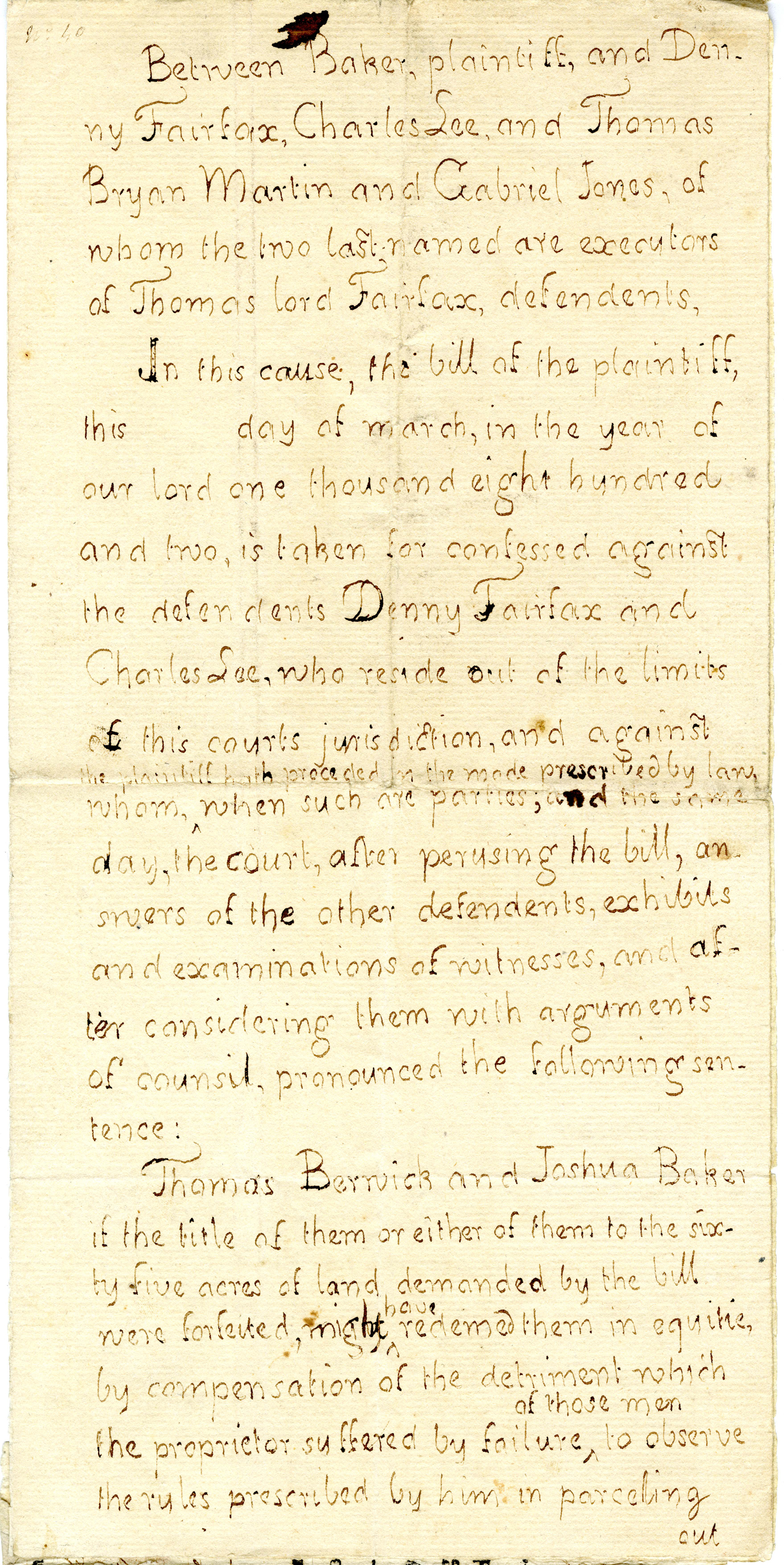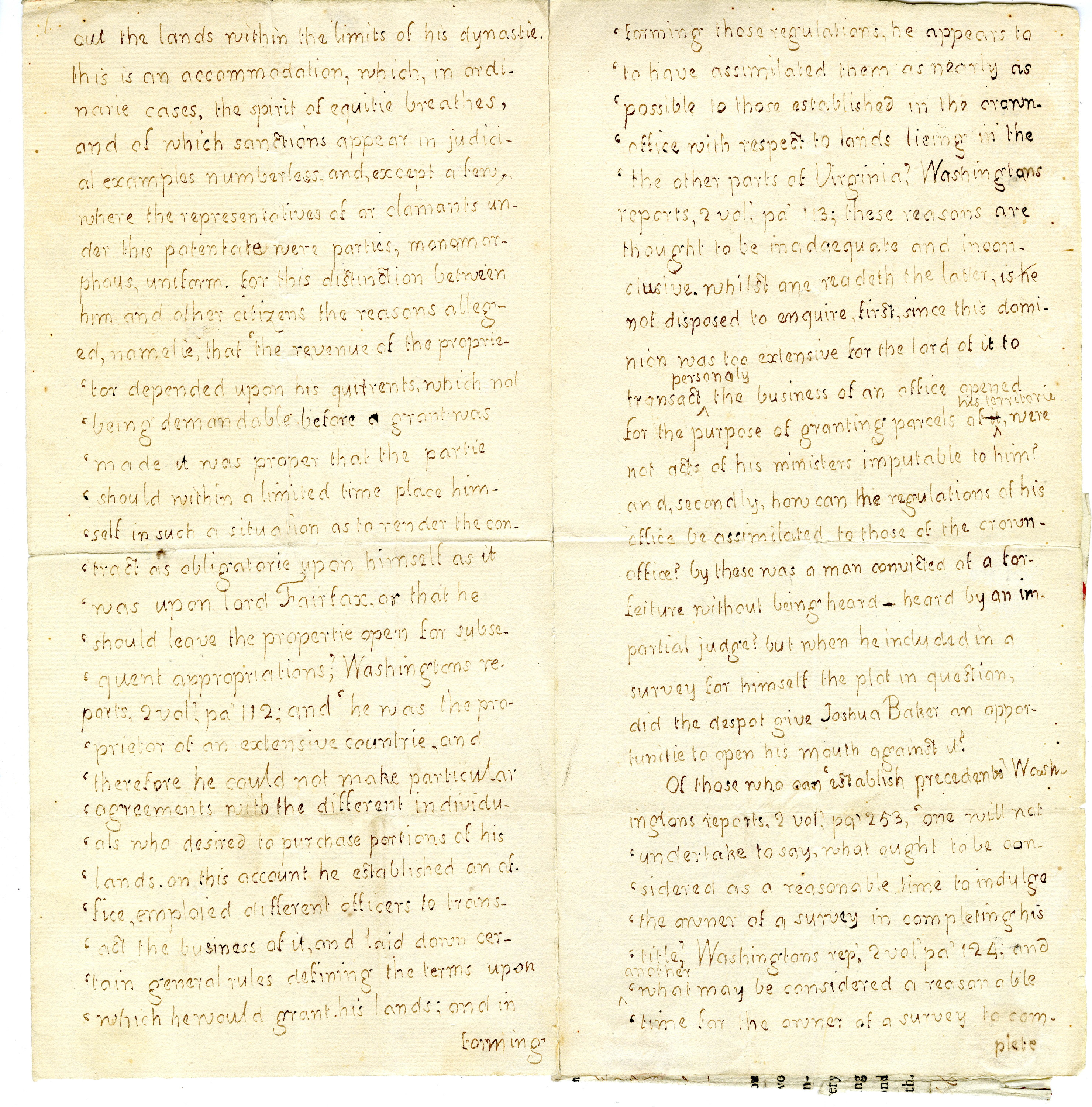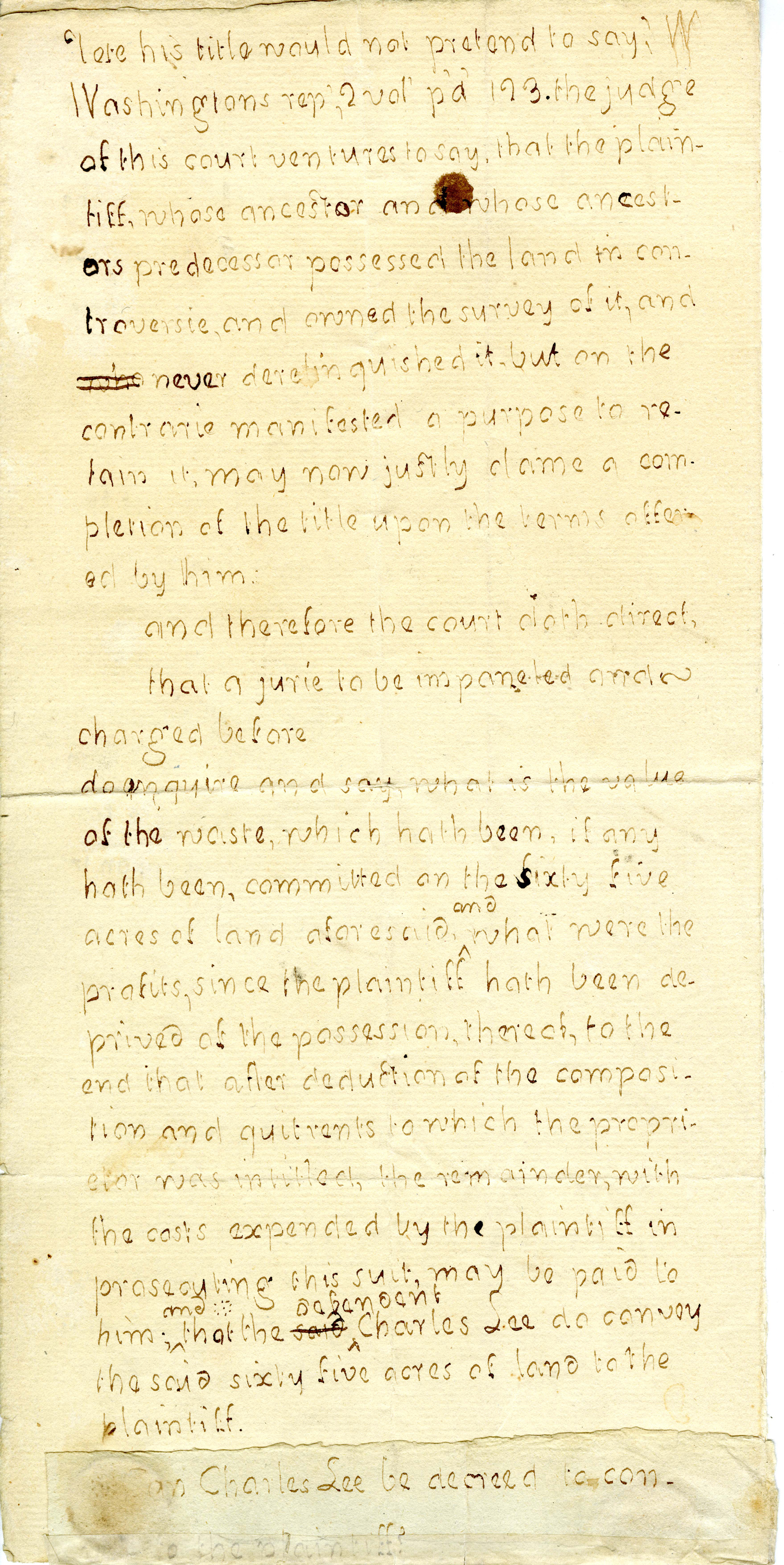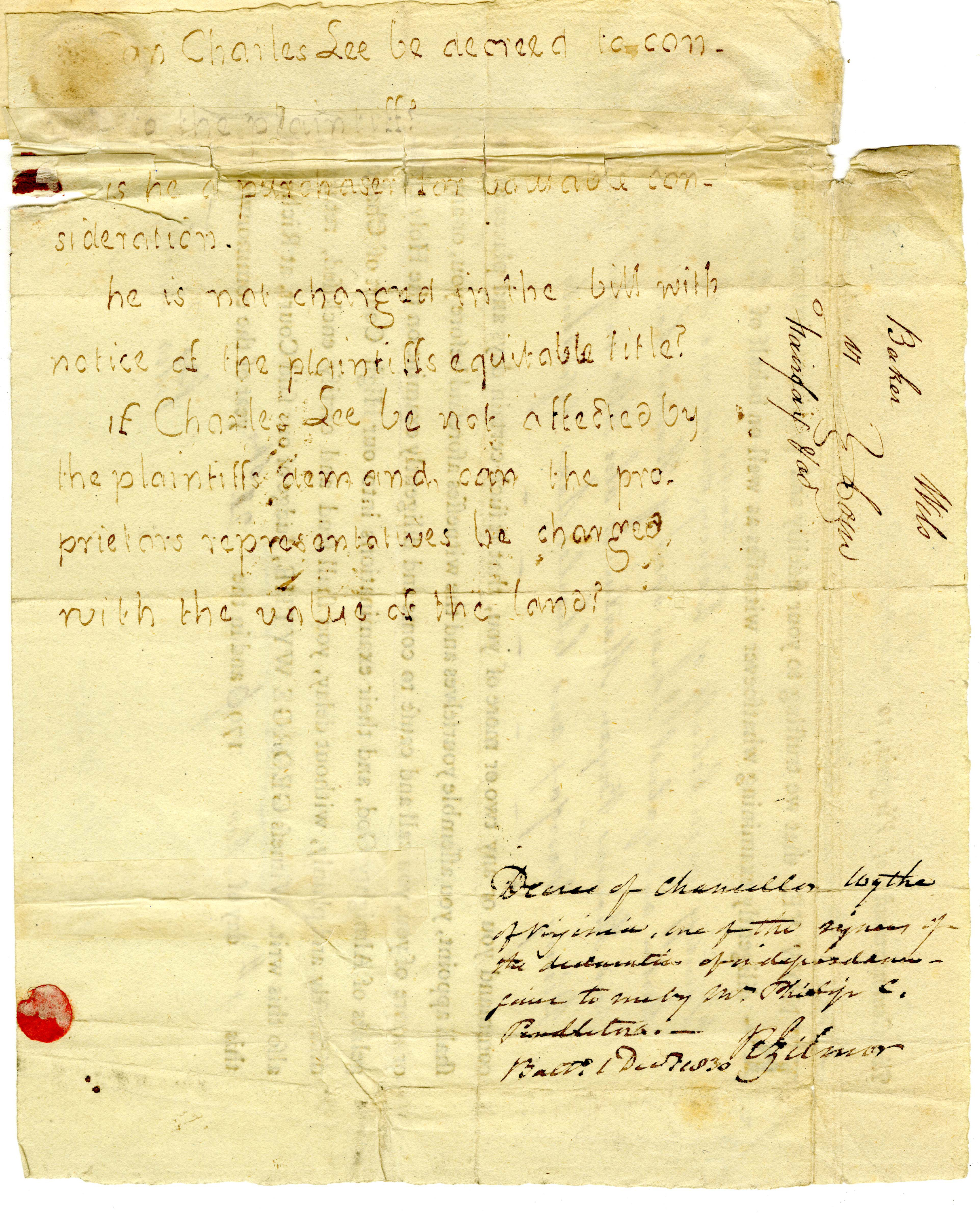Difference between revisions of "Decree in Baker v. Fairfax"
(→Page 3) |
(→Page 4) |
||
| Line 32: | Line 32: | ||
[[File:WytheBakerVFairfaxMarch1802P4.jpg|thumb|left|200px|Page four of [[George Wythe|Wythe's]] decree in the case of Baker v. Fairfax.]] | [[File:WytheBakerVFairfaxMarch1802P4.jpg|thumb|left|200px|Page four of [[George Wythe|Wythe's]] decree in the case of Baker v. Fairfax.]] | ||
| + | <div style="overflow: hidden;"> | ||
<blockquote> | <blockquote> | ||
'lete his title would not pretend to say; Washingtons rep:2vol'p'a' 123. the judge of this court ventures to say, that the plaintiff, whose ancestor and whose ancestors predecessor possessed the land in controversie, and owned the survey of it, and <s>who</s> never derelinquished it. but on the contrarie manifested a purpose to retain it, may now justly clame a completion of the title upon the berms offered by him. and therefore the court doth direct, that a jurie to be impaneled and charged before do inquire and say, what is the value of the waste, which hath been, if any hath been, committed on the sixty five acres of land aforesaid, ^<sup>and</sup> what were the profits, since the plaintiff hath been deprived of the possession, thereof, to the end that after deduction of the composition and quitrents to which the proprietor was entitled, the remainder, with the costs expended by the plaintiff in prosecuting this suit, may be paid to him; ^<sup>and</sup> that the <s>said</s>^<sup>defendent</sup> Charles Lee do convey the said sixty five acres of land to the plaintiff. | 'lete his title would not pretend to say; Washingtons rep:2vol'p'a' 123. the judge of this court ventures to say, that the plaintiff, whose ancestor and whose ancestors predecessor possessed the land in controversie, and owned the survey of it, and <s>who</s> never derelinquished it. but on the contrarie manifested a purpose to retain it, may now justly clame a completion of the title upon the berms offered by him. and therefore the court doth direct, that a jurie to be impaneled and charged before do inquire and say, what is the value of the waste, which hath been, if any hath been, committed on the sixty five acres of land aforesaid, ^<sup>and</sup> what were the profits, since the plaintiff hath been deprived of the possession, thereof, to the end that after deduction of the composition and quitrents to which the proprietor was entitled, the remainder, with the costs expended by the plaintiff in prosecuting this suit, may be paid to him; ^<sup>and</sup> that the <s>said</s>^<sup>defendent</sup> Charles Lee do convey the said sixty five acres of land to the plaintiff. | ||
| Line 38: | Line 39: | ||
</center> | </center> | ||
</blockquote> | </blockquote> | ||
| + | </div> | ||
===Page 5=== | ===Page 5=== | ||
Revision as of 11:51, 21 September 2016

Wythe's decree from March, 1802 in the case of Baker v. Fairfax.[1]
This series of pages details Wythe's decree in a land dispute. In the end, the plaintiff was awarded the land, plus court costs. In addition, the defendant was ordered to pay the plaintiff whatever profits he had unjustly gotten from the land, as well as costs to offset any damages done to it.
Contents
Document text, March 1802
Page 1
Between Baker, plaintiff, and Denny Fairfax, Charles Lee, and Thomas Bryan Martin and Gabriel Jones, of whom the two last named are executors of Thomas lord Fairfax, defendents, In this cause, the bill of the plaintiff, this day of march, in the year of our lord one thousand eight hundred and two, is taken for confessed against the defendents Denny Fairfax and Charles Lee, who reside out of the limits of this courts jurisdiction, and against the plaintiff hath proceded in the mode prescribed by law. Whom,^ when such are parties; and the same day, the court, after perusing the bill, answers of the other defendents, exhibits and examinations of witnesses, and after considering them with arguments of counsil, pronounced the following sentence: Thomas Berrvick and Joshua Baker in the title of them or either of them to the six-ty five acres of land demanded by the bill were forfeited, might^have redemed them in equitie, by compensation of the detriment which the proprietor suffered by failure^of those men to observe the rules prescribed by him in parceling out
Page 2

Page 3
Page 4

Page 5
[Page attached to bottom of previous page]

Can Charles Lee be decreed to con-[sider] to the plaintiff?
is he a purchaser for payable con-sideration. he is not charged in the bill with notice of the plaintiffs equitable title? if Charles Lee be not affected by the plaintiffs demand, can the pro-prietors representatives be charged with the value of the land?
Decree of Chancellor Wythe of Virginia, one of the signers of the declaration of independence and given to me by Philip C. Pendleton. - R Gilmore
See also
References
- ↑ "Decision of George Wythe in a lawsuit, November 9, 1796." Charles Roberts Autograph Letters Collection, Quaker & Special Collections, Haverford College, Haverford, Pennsylvania.